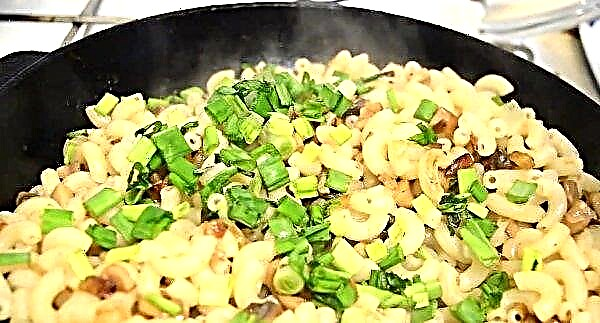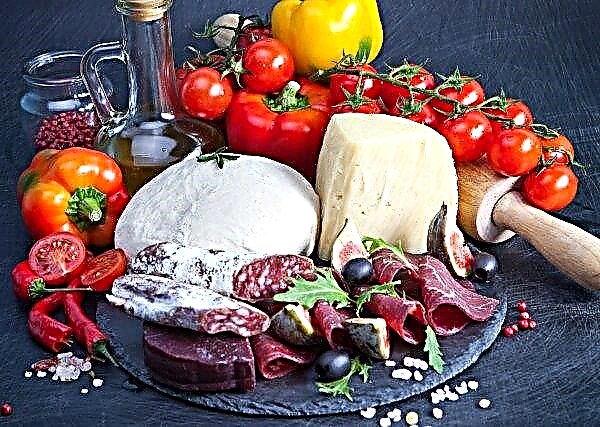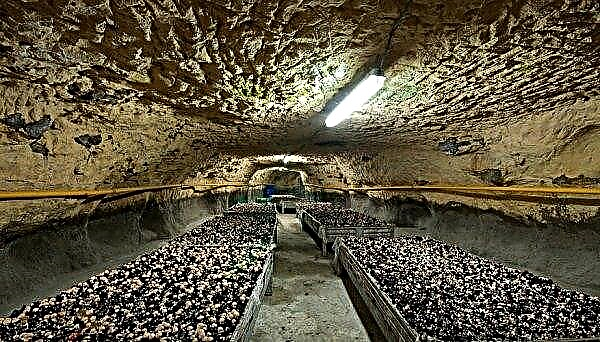The benefits of turkey meat are many. Nutritionists value it for its nutritional value - it is lean meat with many vitamins and minerals in its composition. Chefs appreciate the turkey because it can be used to prepare a variety of dishes.
The composition and calorie content of meat
Turkey meat is a very tender type of meat, has a pinkish tint (darker than chicken meat), the main part is white or reddish. The color of the turkey determines the type of bird. The composition is almost completely free of fat. Turkey meat is considered hypoallergenic, although in rare cases, the protein that is part of it can cause allergies. Composition per 100 g:
Composition per 100 g:
- proteins (19.5 g);
- fats (22 g);
- water (57.6 g).
Calorie content - 189 kcal per 100 g. Due to such a low calorie meat is considered dietary.
The effect of turkey on the human body
Any meat is a controversial product regarding its benefits, but indispensable in human nutrition. Turkey meat has its pros and cons for the human body. The turkey can’t do much harm to him.
Benefit
Due to the presence of a large number of minerals and vitamins in this type of meat, it has more beneficial properties than chicken. Its advantages are as follows:
- Strengthens male power.
- It is useful for pregnant and lactating women, as it strengthens the immunity of the child.
- It promotes healthy growth due to vitamin A in the composition, which is very useful for children.
- Increases the level of hemoglobin in the blood due to the content of vitamin E.
- Improves the endocrine system due to iodine.
- Strengthens bones.
- Useful for the nervous system.

Harm
Bad consequences of its consumption in food can occur in rare cases:
- If the meat was stale or was stored in the wrong conditions, it can cause food poisoning.
- With individual intolerance to meat protein, an allergy can occur.
- May not be absorbed by the child's body when feeding infants up to 6 months.
Important! Feeding newborn children with turkey poultry is strictly prohibited.
Contraindications
The idea is considered a dietary type of meat and is easily digested, therefore it has few contraindications:
- Individual intolerance.
- Diseases of the genitourinary system.
- Gout.
- Renal failure.

Daily intake
Since turkey meat mainly consists of proteins, its norm is calculated on the basis of the daily norm of proteins for humans.
For men, it is 120-140 g of meat, for women - 100-120 g, for children from 1 year old - about 60–80 g. In terms of pure protein: 50 g for men, 40 g for women and 25 g for children respectively.
Did you know? In adulthood, a female turkey has about 3,500 feathers.
Rules for the selection and storage of turkeys
To choose a tasty, fresh and high-quality turkey, you need to familiarize yourself with some selection rules and follow them when buying. Good turkey:
Good turkey:
- has an elastic structure (when you click on it with your finger it quickly takes its previous shape);
- fleshy;
- does not have fatty layers;
- the skin color should be pale pink;
- has no spots on the carcass;
- must be free of mechanical damage.
Store the product in a refrigerator or freezer. In the first case, the carcass can lie no more than two days. When frozen, it can be stored for up to 60 days, provided that it will not thaw and freeze again.Important! Bluish color of meat is not allowed.
Video: How to choose and store a turkey
Cooking Tips
Depending on the method of preparation of turkey, it can be dietary or high-calorie. In the first case, it is better to boil, stew or bake without adding oil. To make a dish of turkey as tasty as possible, you must follow these recommendations:
- Before baking, it is better to marinate the meat in lemon juice or in your favorite sauce;
- use seasonings for poultry, such as dried celery, turmeric, paprika;
- it is better to cook turkey meat immediately after purchase.












